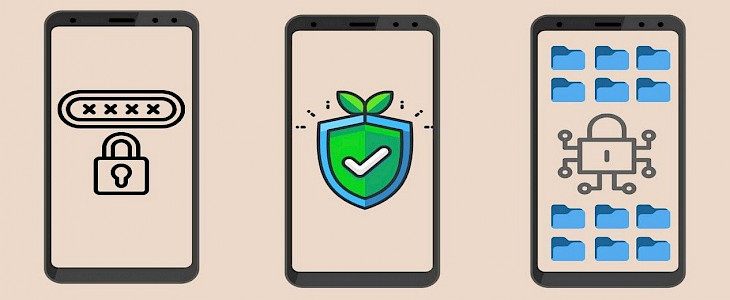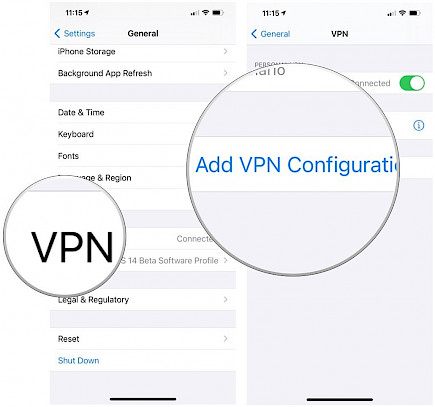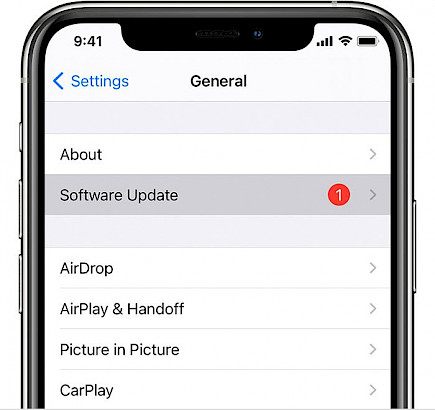
A big question in today's world is whether or not phones are really safe; another big question that arises specifically in the mind of iPhone users is whether it is safe to believe one of the tech giants, Apple, when it says that the iPhone doesn't compromise on security?
Well, we will have to say no. The security of a user's iDevice has been breached in the past, so Your iPhone can, in fact, be hacked.
But, hacking of an iPhone can be prevented. Here’s how...
How can Anybody Hack your iPhone?
Email attachments and URLs are frequently used in these assaults, and they typically happen in unexpected ways. For instance, Covid-19 has recently been used in the majority of phishing attempts.
You'll get an email inviting you to download a file or click on a link to learn more about Covid-19. The email appears to be from a reputable source, such as the United Nations, the World Health Institution, your place of business, or any other reputable organization.
You will be routed to a fake site belonging to the hackers as soon as you download the attachment or click on the link. The site asks for your personal information, which hackers might use to steal your identity or financial information.
Although, iOS is safe to use and does not allow third-party app downloads. Some users jailbreak their phones, bypassing this restriction and downloading apps from other sources. As a result, the operating system is prone to viruses and hacking. Some malware masquerades as applications, and installing them grants hackers access to your iPhone.
How to Protect Your iPhone?
1. Strong Passwords
The first and foremost step without giving it a thought is through your passwords. Your most basic form of protection, particularly in the event of loss or theft, is to lock your phone with a face ID, a fingerprint, a pattern, or a pin. (Depending on your device, operating system, and manufacturer, your selections will vary.) Take it a step further for further security. Secure your phone's accounts with strong passwords and use two-factor authentication on applications that support it, which adds another layer of security.
2. Check your apps
We all download applications, try them out for a few minutes, and then forget about them. Swipe across your screen for a few seconds to determine which apps you're actually done with, then remove them along with their data. Some apps come with a user account that might store data on your phone. Take it a step further and deactivate those accounts to ensure that any data stored on your phone is no longer accessible.
This is because each additional program is another software that has to be updated or that may have a security flaw. Delete outdated applications is a sensible step in this day of data leaks and dangers. Update the ones you retain on a regular basis, and if possible, set on auto-updates. Updates not only bring new features to programs, but they also frequently fix security concerns.
3. Make Use of VPN
Experts recommend utilizing a VPN while connecting to a public Wi-Fi network on your phone rather than using your mobile data. A virtual private network (VPN) can protect your data from being spied on by other users on the same public network. They can also encrypt your data communications, allowing you to bypass internet filtering and restrictions and access a larger range of information from around the world.

It can protect you from needing to connect to a free public network that others can use to obtain access to your phone for our reasons. When looking for a supplier, do some research to see if the firm is well-known and trustworthy. There are many free VPN programs in the Apple App Store and Google Play Store, but some of them have questionable practices, so be cautious.
4. Keep your iPhone Updated
Check to see if your iOS is up to current. This is your first line of protection against security flaws. There are a lot of them, I know, but that's the world we live in these days. It's a good idea to maintain your applications up to current as well, but it comes second to keeping iOS up to date.

Given the number of bug fixes in recent iOS versions, I don't think I'll be waiting long to install them. Sure, there are problems with iOS versions, such as battery difficulties and the like, but these are, in my opinion, less of a problem.





